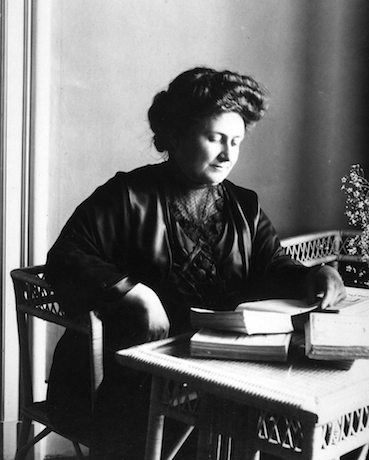Children at play are not playing about; their games should be seen as their most serious-minded activity.
It's clearly a budget. It's got a lot of numbers in it.
Logic will get you from A to B. Imagination will take you everywhere.
I'm writing a book. I've got the page numbers done.

We especially need imagination in science. It is not all mathematics, nor all logic, but it is somewhat beauty and poetry.
I don't think Maria Montessori really meant to imply that there is no creativity in mathematics as her schools are full of inspired mathematics pedagogy.
Logic and mathematics are nothing but specialized linguistic structures.
Beauty is the first test: there is no permanent place in the world for ugly mathematics.
Mathematics is a place where you can do things which you can't do in the real world.
Chess helps you to concentrate, improve your logic. It teaches you to play by the rules and take responsibility for your actions, how to problem solve in an uncertain environment.
The habit of attention, the power of abstraction, and of bringing the mind for a length of time to bear upon the same subject, and, above all, that strength which will sustain intellectual labour without fatigue, must be acquired early, or they will never be our own.
There is no science in this world like physics. Nothing comes close to the precision with which physics enables you to understand the world around you. It's the laws of physics that allow us to say exactly what time the sun is going to rise. What time the eclipse is going to begin. What time the eclipse is going to end.
Mathematics are the result of mysterious powers which no one understands, and which the unconscious recognition of beauty must play an important part. Out of an infinity of designs a mathematician chooses one pattern for beauty's sake and pulls it down to earth.
There's a good case to be made that having fun is a key evolutionary advantage right next to opposable thumbs in terms of importance. Without that little chemical twist in our brains that makes us enjoy learning new things, we might be more like the sharks and ants of the world.
In my school, the brightest boys did math and physics, the less bright did physics and chemistry, and the least bright did biology. I wanted to do math and physics, but my father made me do chemistry because he thought there would be no jobs for mathematicians.
If you're sitting across the table from someone, the geometry of the situation says 'confrontation.' If you're walking with somebody, you're heading in the same direction, and the spatial dance you're doing is a little more cooperative.
Arithmetic, when properly taught, is acknowledged by all to be very important as a discipline of the mind; so much so, that even if it had no practical application, which should render it valuable on its own account, it would still be well worth while to bestow a considerable portion of time on it for this purpose alone.
As a graduate student I studied mathematics fairly broadly, and I was fortunate enough, besides developing the idea which led to 'Non-Cooperative Games,' also to make a nice discovery relating to manifolds and real algebraic varieties.
Many teachers seem not to know that there is more than one way to do a thing, or think of a thing; and if they find a scholar pursuing a method different from their own, they suppose of course he must be wrong, and they check him at once, and endeavour to force him into their way, whether he understands it or not... Nothing is more discouraging to scholars, than to interrupt them, when they are proceeding by a method which they know to be right; and to endeavour to force them into one which they do not understand, and which is not agreeable to their way of thinking.
[Many confuse mathematics] with arithmetic, and consider it an arid science. In reality, however, it is a science which requires a great amount of imagination.
Today's scientists have substituted mathematics for experiments, and they wander off through equation after equation, and eventually build a structure which has no relation to reality.
Guided only by their feeling for symmetry, simplicity, and generality, and an indefinable sense of the fitness of things, creative mathematicians now, as in the past, are inspired by the art of mathematics rather than by any prospect of ultimate usefulness.
[Mathematics is] to be recommended as a preventative against frivolous reading and a premature development of the imagination.
The ballet makes us look at those bodies, it makes us listen to that music, it makes us wonder at the geometry, of the way they come together. The way that extraordinary space is controlled and given such emotional force.
Pure mathematics is on the whole distinctly more useful than applied. For what is useful above all is technique, and mathematical technique is taught mainly through pure mathematics.